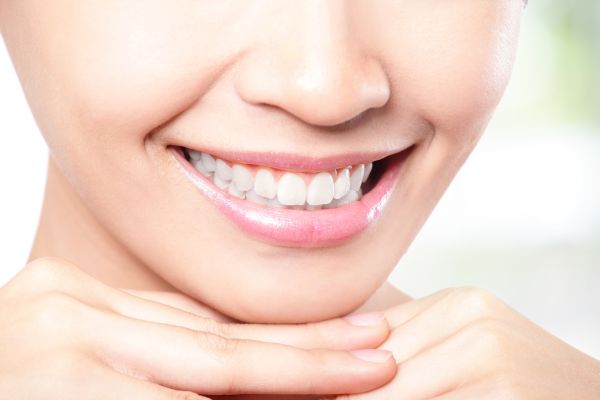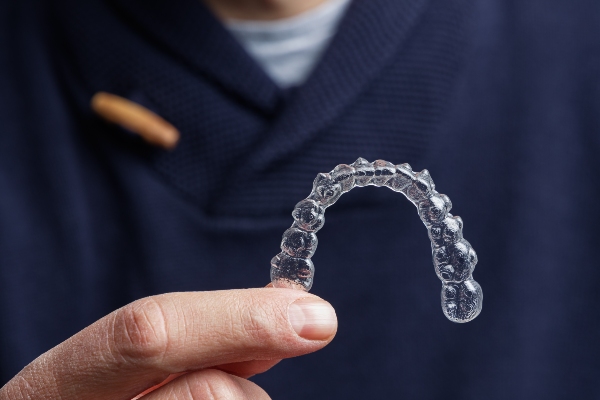Implants to Support Upper or Lower Dentures

A set of implant-supported dentures stay in position, with no slippage, for years on end. In contrast, regular old dentures wear out over time. Ill-fitting dentures have been known to cause embarrassing scenes that have been immortalized in countless movies and TV shows.
So, if you are missing most or all of your upper teeth, you should consider dental implants. An implant is placed in the jaw, where it integrates with the bone. The implant connects to an abutment, which in turn connects to a set of dentures. This means that part of the abutment sits below the gums while part of it sits above the gum line.
Dental implants are steady, immovable anchors that allow dentures to function like a set of natural teeth. If you want a life free of slurred words, constant repairs and the possibility of dentures falling onto the dinner table, this article is for you.
About implant-supported dentures
These are simply dentures that are held in place by dental implants embedded in the jaw, much in the same way that a natural tooth is held in place by its root. Implant dentures can be permanent, like All-On-4® dentures. Such dentures fasten onto implants with the help of screws.
There are also removable dentures, also known as overdentures. They come with clasps (or some other type of connector) that latch onto the abutments. A person wears the dentures by fastening the connector onto the abutments. They take them off by disengaging the connector from the abutments and lifting the dentures out of the mouth.
Implant dentures for the lower jaw
How many dental implants does it take to secure a set of dentures in place? For fixed dentures like all-on-4, a dental specialist will place four implants in the jaw. The implant dentures will be fabricated with allowances for the abutment. As such, these allowances or ‘sockets’ are positioned to align with the abutment.
Whenever possible, the dentist will place the maximum number of implants that will comfortably distribute the pressure applied by biting and chewing. They will avoid placing fewer implants. If All-on-4 dentures rest on a single pair of implants, the stress and strain of chewing could dislodge them. This means that the chances of implant failure rise if the number of implants is insufficient.
The process of placing implants for overdentures is not much different from that of All-on-4 implant dentures. The difference is that some dentists will opt to place two implants instead of four.
Implant dentures for missing upper teeth
Traditional upper dentures are usually more stable than lower dentures, so it is possible to find a person with overdentures on their lower jaw and regular dentures for their upper teeth. There are people who have implant-supported dentures on their upper jaws instead.
Like with the lower jaw, All-on-4 implant dentures can replace missing upper teeth. As can a set of overdentures.
A dentist will recommend the type of implant dentures that will work best for an individual patient. In some situations, the dentist may advise the patient to forego implants on the upper jaw altogether.
Let us provide you with dentures that work perfectly
Thanks to dental implants, you can enjoy a set of teeth that work just like natural teeth. Are you interested? Then call or visit our Sunnyvale office to set up a consultation. Our dentist will evaluate you and advise you on the best way to upgrade your smile.
Here's how you reach us…
Check out what others are saying about our services on Yelp: Read our Yelp reviews.
Recent Posts
Getting a dental crown is a seamless procedure that is done in dental offices every day. There are various reasons to get a dental crown, which will play a role in how the process goes. For example, for those getting a crown to finish the tooth replacement process after an implant has been inserted, the…
If a patient suffers from misaligned teeth or a misaligned bite, Invisalign® clear aligners might be the solution they need to ensure their smiles stay bright – and straight! As one of the most trusted clear aligner systems will help straighten teeth and correct the bite without wires and brackets, meaning that patients can smile…
Your dentist may recommend a dental bridge if your case needs it. Every patient has a different set of needs. Proper assessment allows the dentist to suggest the right dental replacement. Here are the details on when a dental bridge may become your dentist’s recommendation.Dentists often encourage their patients to stop consuming tobacco. Following this…
When it comes to replacing missing teeth, dental bridges are a popular and reliable option that offers versatility by restoring one to four missing teeth in a row. Along with restoring a smile by replacing missing teeth, a dental bridge offers multiple benefits to one's oral health while addressing several issues simultaneously.Tooth loss can occur…







